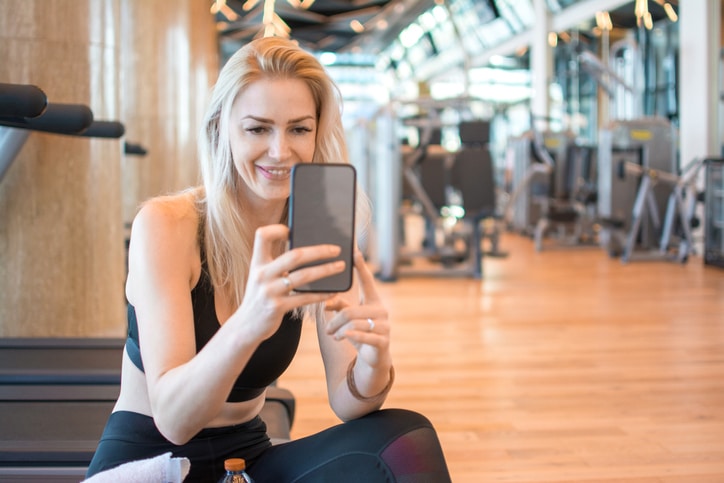So this week Facebook launched a special portal called Explore London 2012 to give users more direct access to the athletes of the games. It has been set up to enable the athletes to speak to the fans easier – this will allow entrants to share updates and images from the games. Something which should be applauded – anything that opens up access to any huge event is brilliant in my opinion. According to Techcrunch the project has been in development for more than 18 months. However, it appears the Olympic Committee has taken a view that it can’t stop visitors sharing brilliant content from the games but apparently the athletes are not actually allowed to update their platforms if they are in a stadium – why?
I love the Olympics but I find the whole social media blackout thing a tad bizarre, yes I understand the games have to be funded by sponsors such as Coca Cola and McDonald’s and these sponsorships need to be protected but I think it’s time for a common sense approach on what people can write and say about the Olympics. In case you weren’t aware the Olympic Committee released some very detailed guidelines a while back which state a commercial companies cannot mention the Olympics on their social media channels in pretty much any guise. It is very specific on what a commercial company cannot do, but we all know that lines do go grey in social media terms as its people’s social lives online and we all use the different platforms differently.
So I ask myself this, does that mean I can’t write this blog post actually supporting the new portal? This is my personal blog and not the blog of my company so where do I stand? Will I be contacted by the committee (or social media police) for writing an article on a sporting event that I love and have bought tickets for? Common sense should prevail here – yes we don’t want brands using the Olympics for something to hijack, and get Kudos for, and any brand doing that in a very naughty Paddy Power Nicklas Bentner style should be taken to task pretty quickly.
On a recent journalist call around, during the Jubilee, a colleague of mine spoke to several of the news desks on the national newspapers that said they had received more than 10 different Jubilee related PR stories. I joked and said why don’t you tell them you have something really original – a story on the recession – I can hear you groaning as I type.
I have just finished reading an interesting post by James Paterson in it he states:
The requirements that the IOC imposes on a nation seeking to host an Olympics are extreme. The IOC requires the chosen nation to pass a variety of laws to provide specific protection relating to the Games’ intellectual property rights. The host nation is also subject to a number of stringent commercial requirements, including the provision of ‘clean’ stadiums and broadcasts (i.e. no advertising) in order for the IOC to maximise its own sponsorship value. These rather draconian requirements of the IOC often trickle down through to requirements demanded by the host nation when contracting with third parties. The numerous national Olympic committees, such as the AOC, also seek to maximise their rights and leverage in commercial agreements, to give themselves maximum flexibility in case they need to act to appease the IOC.
The AOC’s social media guidelines provide that the Chef de Mission acts as the spokesman for the team and is responsible for all official public statements in the media including social media statements, which it can delegate to other officials at various times. That said, athletes are permitted to contribute to social media while at the games, provided those posts do not criticise other team members or the AOC, any performances or coaching, or disclose any confidential information of the AOC.” Any comments posted must be a factual account of the athlete’s own, personal experience. The AOC requires that the posts must not be offensive, inappropriate, defamatory, or misleading.
Get set for a barrage of bland “It’s awesome to be here, my team mates are the best and the atmosphere is great #2012” tweets.
A breach of these AOC social media guidelines – which in large part mirror the IOC’s own terms – can lead to a penalty as simple as the athlete issuing a corrective statement. However, it is also considered breach of the Athlete Participation Agreement, so the AOC would have discretion to impose more serious sanctions, such as those used in this recent instance.
I do appreciate that the control of social media is difficult (why try and control it anyway? This isn’t China) but I see the fact that people want to share imagery, videos and blog posts as a thing which should be encouraged not hampered or policed. This Games is going to be brilliant, and in my opinion has the opportunity to be the first social games ever, and so it has a great opportunity to show to the world that this sporting event is the finest. Either the powers that be will agree with me or I will get a letter asking me to remove this post. I am a citizen journalist reporting on the news not an advertiser saving on funds for my global advertising campaign with guerrilla marketing tactics. I wonder if they are listening.
They can’t stop me loving the games though – I will be routing for team GB in everything from the Archery and shooting right through to the crazy BMX, boxing and Taekwondo.
If you would like a full breakdown of the participant guidelines this document is rather useful. What do you think should the games simply drop the rigidity of social media use?
Chris Norton is the founder of Prohibition and an award winning communications consultant with more than twenty years’ experience. He was a lecturer at Leeds Beckett University and has had a varied PR career having worked both in-house and in a number of large consultancies. He is an Integrated PR and social media blogger and writes on a wide variety of blogs across a huge amount of topics from digital marketing, social media marketing right through to technology and crisis management.


